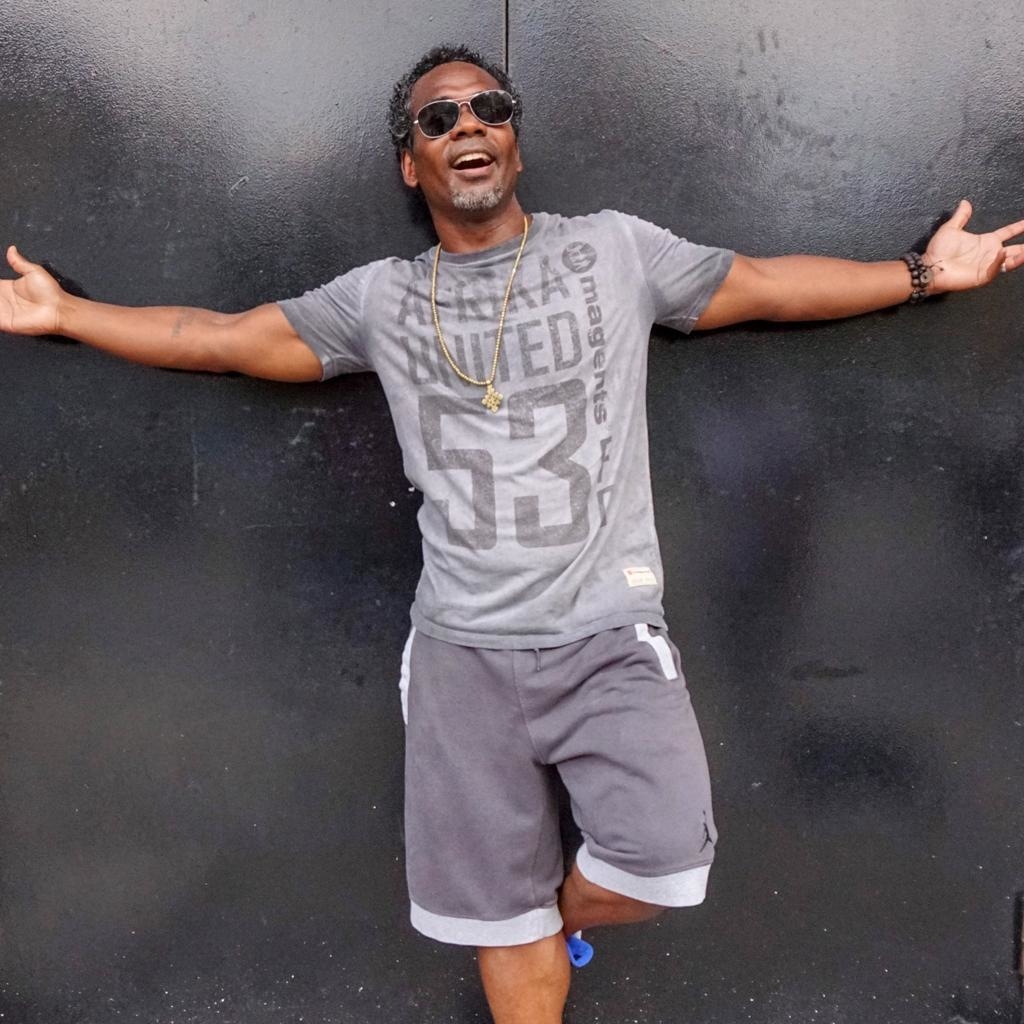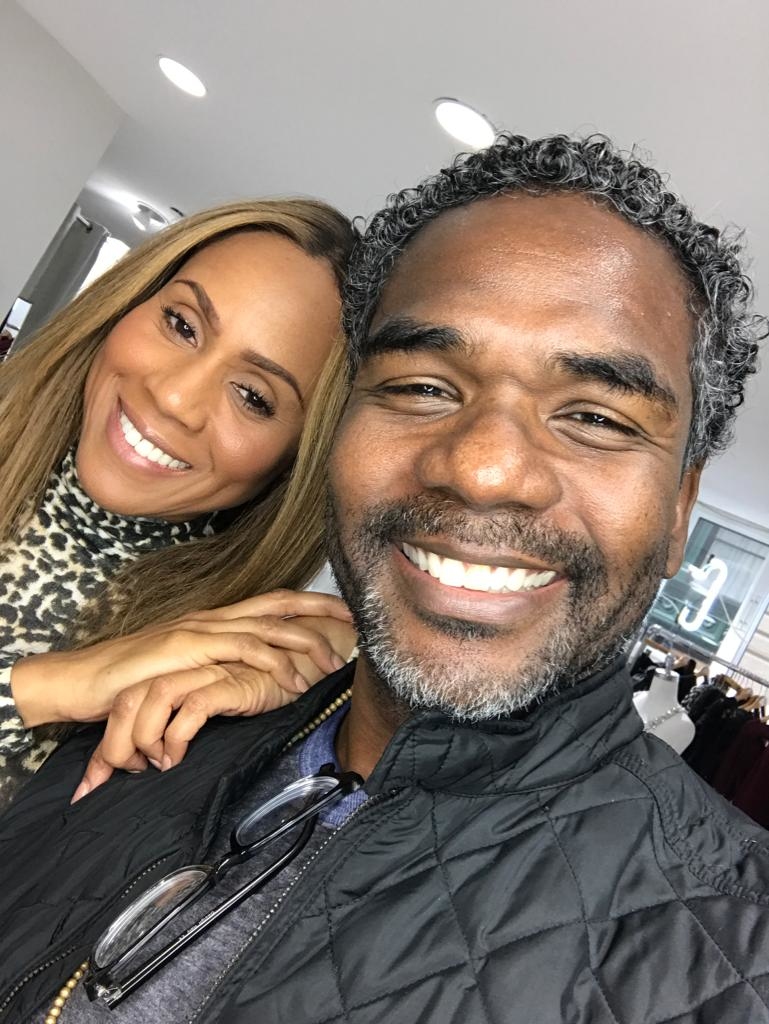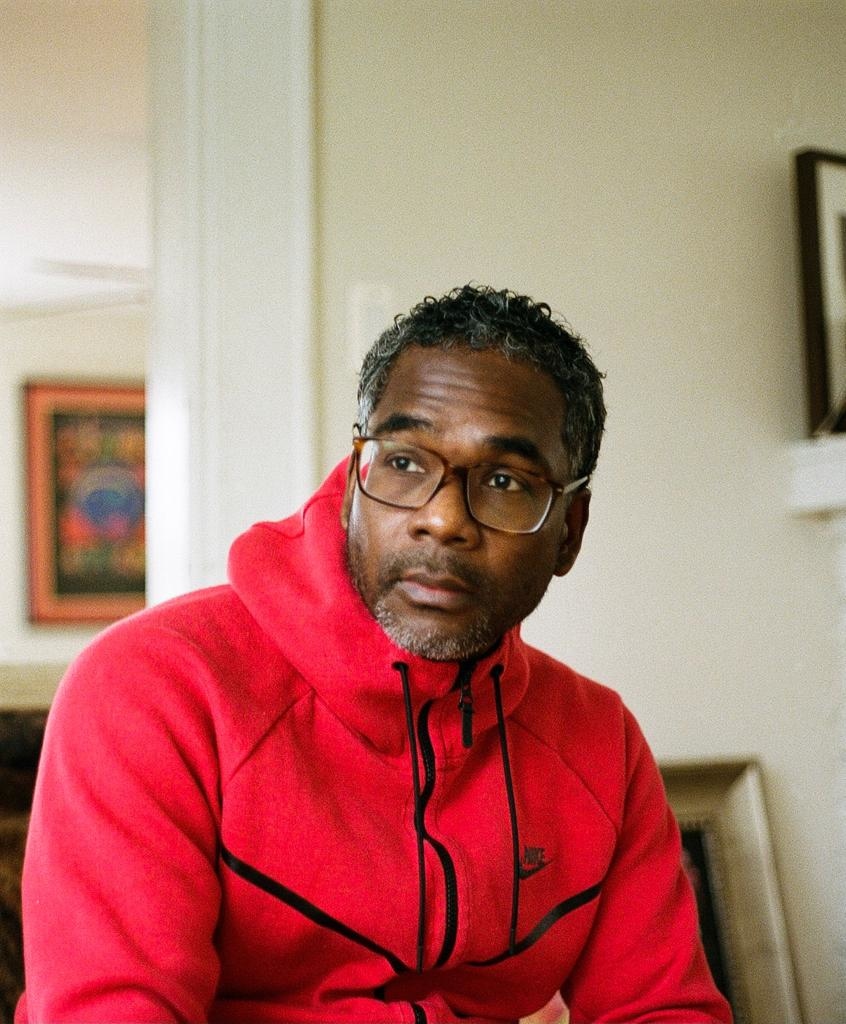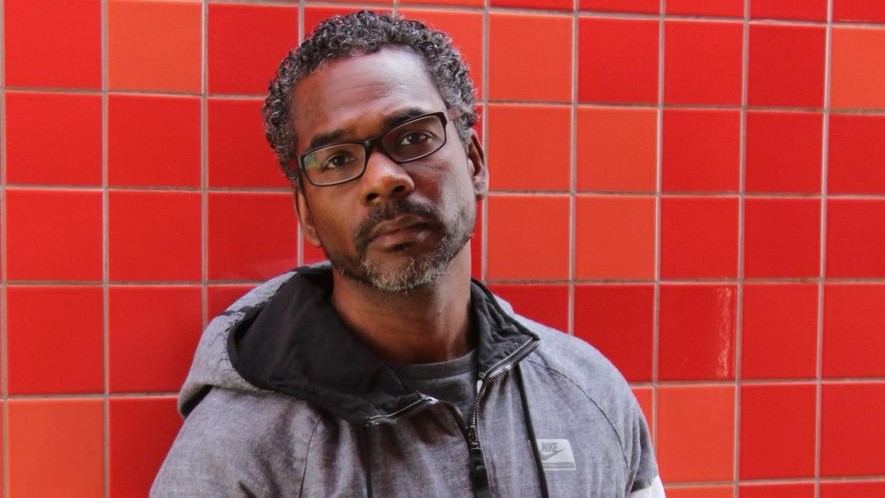June is Caribbean-American Heritage Month, a month dedicated to recognising and celebrating the significance of Caribbean people and their descendants in the history and culture of the United States. Over the next few weeks, Loop News will profile some people of Caribbean descent who have made a tremendous impact in the entertainment industry in the United States.
Nolan Baynes credits his Guyanese upbringing for the success he has had in his life.
The General Manager of 300 Studios, an arm of 300 Entertainment, which is home to artistes such as Megan Thee Stallion, Gunna, Young Thug and Mary J Blige, Baynes has worked his way up the entertainment eco-system in the United States from budding artiste to music executive.
He says he can’t imagine what his life would have been had he not had his foundation as his anchor.
“I can’t tell you how many times I have hit these crossroads in my life where every decision I have made, strong ones, important choices, that were based on lessons from home, Guyanese culture that allowed me to choose the right path every time,” he tells Loop News.
Stating that growing up in America as a child makes one susceptible to bad aspects of the culture, Baynes says the lessons he learned from back home helped him to navigate many challenges.
“My Guyanese upbringing grounded me to the level where when I went to school I was serious about school because that is what I was taught to be back home. I didn’t talk back to teachers because I was taught that is not what you do…even the decisions I made in my music career were based on can I live with myself afterwards. That is all Guyanese teaching. That is my aunty, my mum, my dad. You do the things that would allow you to look at yourself in the mirror and you respect other people. All those basic things have been my anchor as I navigate my life in the music industry,” he explains.

The men of 300: Kelly G, head of creative strategy 300 Studios, Kevin Liles, founder/CEO of 300 Entertainment and Nolan Baynes
Born in Mackenzie and growing up in New Amsterdam, Baynes migrated to the United States at the age of nine when his father, who worked in the bauxite industry, moved the family there after completing studies in Canada.
His family settled in Brooklyn at a time when Hip Hop was still a nascent genre and dancehall was just gaining a foothold in the US.
Baynes was first introduced to the music business working at a record store his father and some friends owned. There they listened to a lot of dancehall tapes and sound clashes from Jamaican Sound Systems and helped independent artistes who would come in and sell albums on consignment.
Baynes himself was a dancehall artiste as a teen signed to Freeze/Fever Pitch label, a part of EMI.
At the George Westinghouse Vocational and Technical High School, he was among a student body that produced today’s Hip Hop legends among them Jay Z, Busta Rhymes, DMX and the Notorious BIG.
“I was always around music, I lived it, I breathed it but I was better at the business. I naturally cared about what happened to the business. When I and my crew were recording I would find myself thinking about what do we do with this record, when we do the show, how do we do it?” he reveals.
Working for an independent dancehall label called Signet where Shaggy first got exposure, Baynes decided to focus on the business.
“We were doing things right on the business side and that whole vision of finding Shaggy and signing him, I initiated it because these guys were in my circles growing up, they were the popular artists in Flatbush,” he says.

Nolan with dancehall star Shaggy and singer Kreesha Turner
Despite his interest in the business end, Baynes was still recording until a pivotal experience forced him to abandon hopes of being an artiste.
Todd Terry, a dance producer and owner of Freeze Records at the time, was looking for reggae acts for a house music series called Dred Stock.
Baynes couldn’t find acts available for the project so he ended up doing it himself.
“I went home, wrote a song, came back the next day, knocked it out and he was like this is really good do you have another one. Two weeks in, we finish an album and we have a Dred Stock group with random artists that I knew from Flatbush. He sent the project to EMI and they liked it so much they licensed it. He realised I wasn’t into dance music so he said if you do this project for me I will sign you as a dancehall artist to do your own project,” Baynes recalls.
The relationship with Terri and EMI soured and the Dred Stock project stalled.
Disheartened, Baynes decided that he would no longer put himself in a position where he didn’t have any power so he shelved his career as an artiste.
“I started really studying the music industry, paying attention, asking questions. I wanted to know everything from publishing to licensing,” he said.

Nolan Baynes
Still, at Signet, where by this time Shaggy had moved on as his career blew up, Baynes decided to revitalise the label by doing remixes.
He looked for the hottest song in Jamaica to remix for a Hip Hop audience.
He selected Tour by Capleton and sent it to a bunch of DJs who did remixes. One of them was rapper Lil John, who at the time worked for a record company and had a radio show. He remixed the Capleton track with a Slick Rick beat and Baynes sent it to Funkmaster Flex who played it on repeat on his radio show.
“We were on to something and the record was number one in NY, we had Baltimore, DC,” he recalls.
Despite the success of the record, Baynes didn’t receive payment owed from the label for the song and he quit.
Shortly after, he got an opportunity to work as a production assistant for an MTV shoot for $200 a day.
Curious, he started asking questions about the production and made friends with a producer who kept hiring him for small jobs. When she was promoted to run her own department, she offered him a job, which he turned down.
“My wife, who was my girlfriend then, said you want to be in the music industry and you saying no to MTV? I went back to her two weeks later and asked if the job was still available and she said she filled it. It made me realise how valuable it was and I said next time I get an offer like that I won’t say no. Two weeks later she came back to me with an offer,” he says.

Singer Deborah Cox is one of the many artistes Nolan has worked with
Baynes stayed at MTV for 12 years going from production management for the VMAs and other big events to a music-marketing manager for shows such as TRL. Among his achievements at MTV was the launch of a two-dollar concert series, the launch of MTV 2, the Sucka Free concert series and leading the marketing for Music Choice, one of the first streaming services that reached 75 million homes.
His experience there taught Baynes many aspects of the entertainment industry from budgeting and dealing with unions to conceptualising tours and networking with industry stakeholders.
“Every chapter at MTV is contributing to what I do now. All of those things really helped me but more importantly, working with people in the creative space allowed me to build a sensibility that makes it easy to navigate even an environment like 300. I understand young people, I understand where they are, what they want, their dreams and how much music means to them at this stage of their life. For the older folks who are running the business, I understand the stresses they face, they have to deliver, the business has to be profitable, they have board members to answer to,” he says.

Nolan Baynes
Throughout his career, which included running two boutique agencies, Baynes has also kept a pulse on Caribbean music and artistes. He was part of the team at MTV that launched MTV tempo and managed artistes such as Nadine Sutherland.
It’s in his DNA, he says but as he learns how the business works at a higher level, he is thinking of a different approach for the Caribbean.
“How do we reposition our stories, how do we reposition our artistes, where is the story that is not really told that could be appealing to this audience so if they know we are there it could reawaken a renaissance of our music and culture? I am working on some pretty cool technology things that could have an impact on what we do on the Caribbean side and there are tons of programmes being discussed right now that could help the Caribbean shore up the music industry,” he revealed.
Outside of the entertainment industry, Baynes has intentions to contribute to the development of the land of his birth through construction, infrastructure and clean water initiatives. He is a partner in a business development think tank focused on infrastructure development with active projects in Ghana and South Africa.
He plans to return to Guyana in August with some of his cousins to survey the landscape and identify potential projects to implement.

